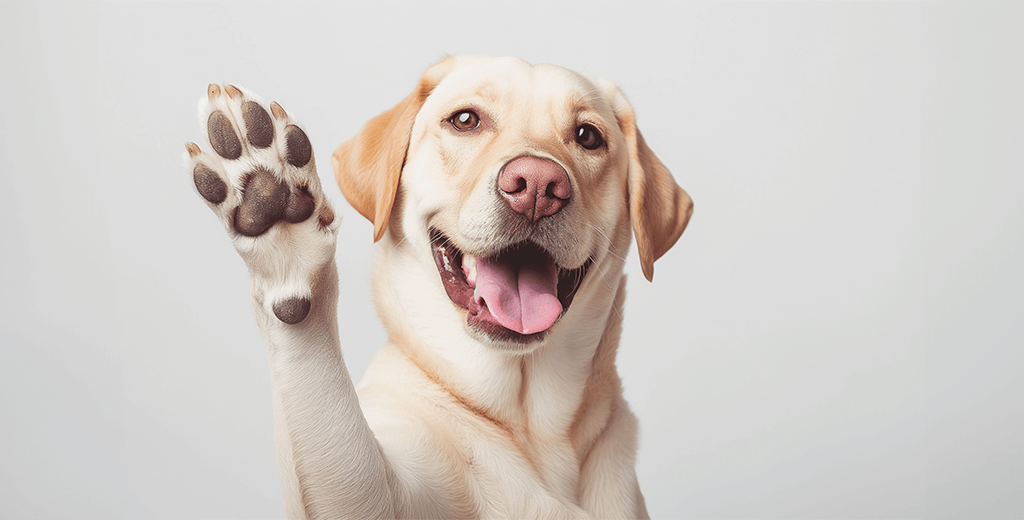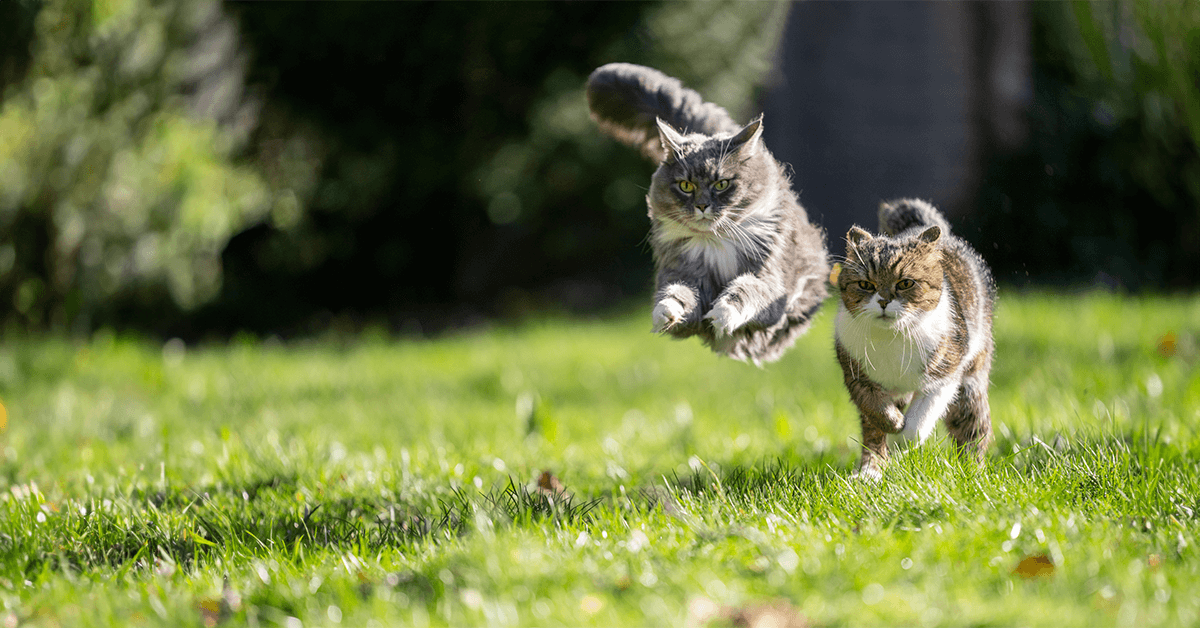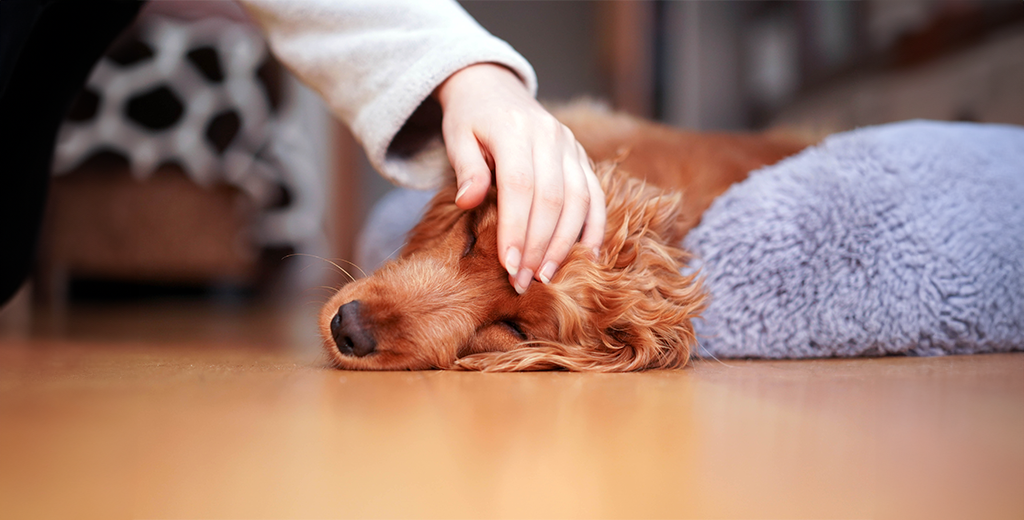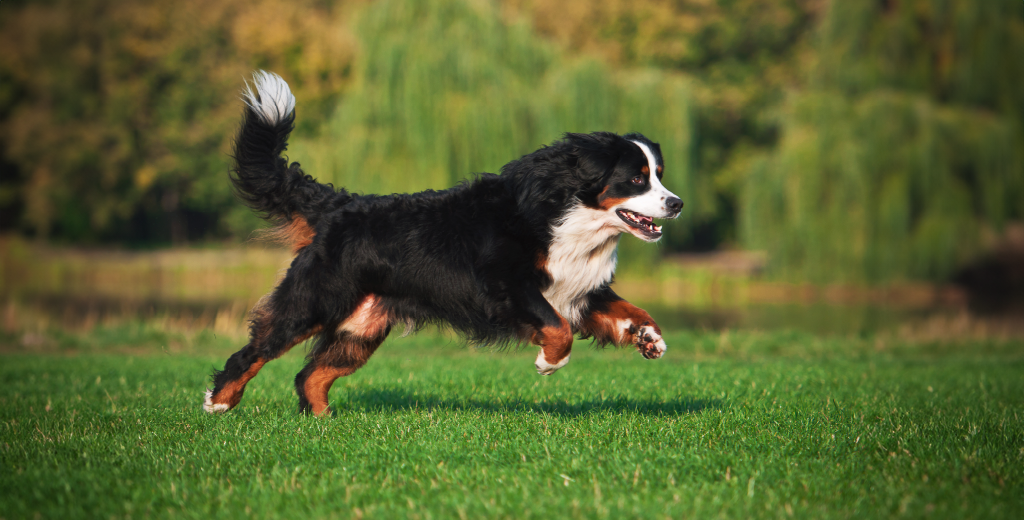Introduction
If you’ve ever caught your dog chewing their paws, you might have wondered what’s going on. It can be concerning to see your furry friend nibbling on their feet, and you may even worry if they’re in pain or feeling unwell. In fact, dog chewing paws can be linked to several issues, including anxiety, allergies, and even gut health. In this blog post, we’ll explore why dogs chew their paws, how gut health plays a role in this behavior, and how a product called Balance can help support your dog’s overall health. Let’s get started!

Why Do Dogs Chew Their Paws?
Dogs may chew their paws for a variety of reasons. Understanding these reasons is the first step in addressing the behavior.
1. Allergies
One of the most common reasons dogs chew their paws is due to allergies. Just like humans, dogs can be allergic to certain foods, pollen, dust, or even flea bites. When a dog has an allergic reaction, their skin can become itchy and irritated, leading them to chew or lick their paws for relief.
2. Anxiety and Stress
Dogs can also chew their paws when they are anxious or stressed. Changes in their environment, such as moving to a new home, loud noises, or being left alone for too long, can trigger this behavior. Chewing helps them cope with their anxiety, but it can become a habit that’s hard to break.
3. Boredom
Sometimes, dogs chew their paws simply because they’re bored. If a dog isn’t getting enough exercise or mental stimulation, they may find themselves looking for something to do. Chewing their paws can become an outlet for their energy.
4. Skin Infections
If your dog is persistently chewing their paws, it could be due to a skin infection. Bacteria or yeast can thrive in moist areas, leading to discomfort. If you notice redness, swelling, or an unusual smell, it’s important to see a veterinarian.
5. Gut Health
Interestingly, gut health can also play a role in your dog’s chewing behavior. The gut is responsible for digesting food and absorbing nutrients, but it also plays a crucial role in overall health. If a dog’s gut health is compromised, it can lead to skin issues, allergies, and even behavioral problems, including excessive chewing.

The Connection Between Gut Health and Dog Chewing Paws
You may be wondering how gut health connects to your dog’s chewing behavior. Here’s how it works:
- Digestive Issues: If your dog has digestive problems, it may lead to inflammation and skin issues. Poor gut health can disrupt the balance of bacteria in the intestines, making it difficult for your dog to absorb nutrients properly. This can cause their skin to react negatively, leading to itching and chewing.
- Food Sensitivities: Some dogs have sensitivities to certain ingredients in their food, which can affect their gut health. If their diet is not providing the right nutrients or is causing digestive upset, this may manifest as skin irritation, prompting them to chew their paws.
- Immune Response: A healthy gut is vital for a strong immune system. If a dog’s gut is imbalanced, their immune system may not function properly, making them more susceptible to allergies and skin infections, both of which can cause paw chewing.
How to Support Your Dog’s Gut Health
To address the issue of your dog chewing their paws, it’s essential to support their gut health. Here are some tips:
1. Provide a Balanced Diet
Start by feeding your dog a high-quality, balanced diet that meets their nutritional needs. Look for dog foods that contain real meat, whole grains, and plenty of fruits and vegetables. Avoid foods with fillers and artificial additives, as these can upset your dog’s gut health.
2. Incorporate Probiotics
Probiotics are beneficial bacteria that can help support your dog’s gut health. These can be found in certain foods, supplements, and treats. Introducing probiotics can help restore the balance of bacteria in your dog’s gut, improving digestion and reducing inflammation.
3. Keep Them Hydrated
Ensure your dog always has access to fresh water. Proper hydration is essential for digestion and helps maintain overall health. If your dog is reluctant to drink water, try adding some flavor, like low-sodium broth, to encourage them.
4. Regular Vet Check-Ups
Routine veterinary visits are essential for monitoring your dog’s health. Regular check-ups can help catch any potential issues before they become serious, including digestive or skin problems. Your vet can also recommend dietary adjustments or supplements based on your dog’s specific needs.
5. Use Balance
One effective way to support your dog’s gut health is by using a product like Balance. Balance is a powerful probiotic supplement designed to promote healthy digestion and gut health in dogs. Formulated with a blend of natural probiotics and prebiotics, Balance helps maintain a healthy digestive system, improves nutrient absorption, and supports your dog’s immune function.

How Balance Works
When you give your dog a scoop of Balance, you kick-start their gut’s ability to overwhelm bad bacteria with healthy bacteria. This aids the process of digesting food, fighting off illness, and feeling great. Whether your dog struggles with digestive issues or you’re looking to optimize their overall health, Balance is the ideal daily addition to their routine.
Why Choose Balance?
- Promotes Digestive Health: A blend of probiotics and prebiotics helps maintain a balanced gut, supporting smooth digestion and nutrient absorption.
- Supports Immune Function: A healthy gut boosts your dog’s immune system, helping them stay strong and resilient.
- All-Natural & Filler-Free: Made in the USA with high-quality, whole-food ingredients, Balance is free from fillers and artificial additives.
- Easy to Use Daily: Convenient powder form mixes easily into your dog’s food, ensuring hassle-free daily supplementation.
How to Use Balance
Using Balance is simple. Just follow the instructions on the packaging. You can give it to your dog daily to help support their gut health and reduce the urge to chew their paws. Many pet owners notice a significant improvement in their dog’s behavior and health after introducing Balance into their routine.

Conclusion
If you’ve noticed your dog chewing their paws, it’s important to understand the underlying causes, including the role of gut health. By addressing allergies, anxiety, boredom, and gut issues, you can help your furry friend find relief.
Support your dog’s gut health with a balanced diet, hydration, and regular vet check-ups. Additionally, consider introducing Balance into your dog’s daily routine. With its natural ingredients and comprehensive health benefits, it can help promote a happy, healthy, and paw-chewing-free life for your dog!



